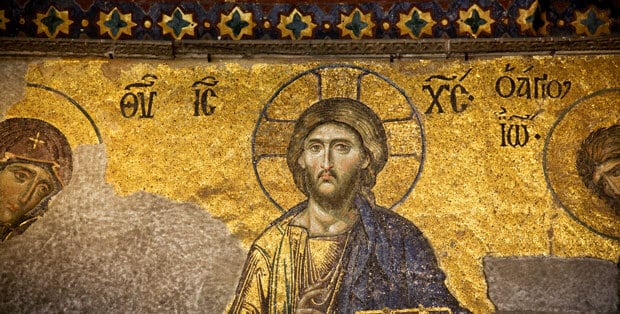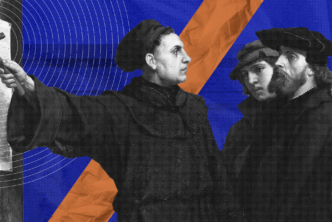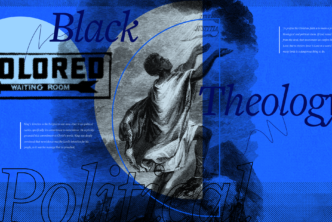I’m a historian and a Christian. In fact, it was my study of history that led to my conversion. I realize this is an unusual progression, and perhaps it is a bias that leads me to believe that the common neglect of history among Christians is lamentable. But bias or no, the neglect is real, and I think I understand it: if our destiny is in eternity, and if Christ is immediate to each of us, of what ultimate significance is the past? Isn’t our relentless quest for the early church or the original manuscripts an implicit repudiation of history?
The value of historical knowledge, then, seems to be simply a matter of being articulate, of being well-read, or of being capable of apologetics. Or else, it has value as an antiquarian hobby—some find history interesting in the same sort of way that others find stamps interesting. If this is the case, surely history is at best ancillary to our Christianity.
But, I think this line of reasoning is mistaken. Rather, I would argue that the connection between history and Christianity is essential. Because the Incarnation was nothing less than the entry of God Himself into the stream of human history, it affirms the reality and value of the lived human experience. The Second Person of the Trinity affects our salvation not as an abstraction, but as a human life. In becoming a son, a friend, a teacher, in speaking our language and mourning our dead, God affirmed the temporal and social reality of our being. In entering our history at a specific time, in continuity with a meaningful past, and proclaiming a future of consummation, Christ repudiated the classical understanding of cyclical and ultimately meaningless history and codified the Jewish understanding of history as the story of God and His people, a story with a beginning and an end. Christianity has temporality in its essence.
With this in mind, the Christian ought to read all history as salvation history, and understand Christianity itself as having duration. It seems to me that a description of Christ that does not include his birth and childhood, while not necessarily wrong, is certainly incomplete; and, likewise, an understanding of Christianity that does not include its history.
And so, we must study history. From the Apostolic Fathers to the Reformation, from the ancient world, through the medieval, and into modernity, with Logos you can make a serious study of church history. We have large, comprehensive collections, such as the Calvin and the History of Calvinism Collection or the Philip Schaff Collection that allow you to dig deep into a historical topic, and we also have shorter histories written by prominent historians that will allow you to brush up on your historical knowledge, such as Church History in Plain Language or our Studies in the Reformation.
History is most profoundly understood, though, through the study of primary sources, such as those found in the A New Eusebius: Documents Illustrating the History of the Church to AD 337, or the Works of the Venerable Bede, and Logos has a massive library of such texts. Whether you want to study the ancient Jews or the church as it enters the post-modern age, Logos has the resources. If you are unsure where to begin, try browsing Logos products by history products and see what piques your interest.
What are your favorite texts for studying Christian history?





